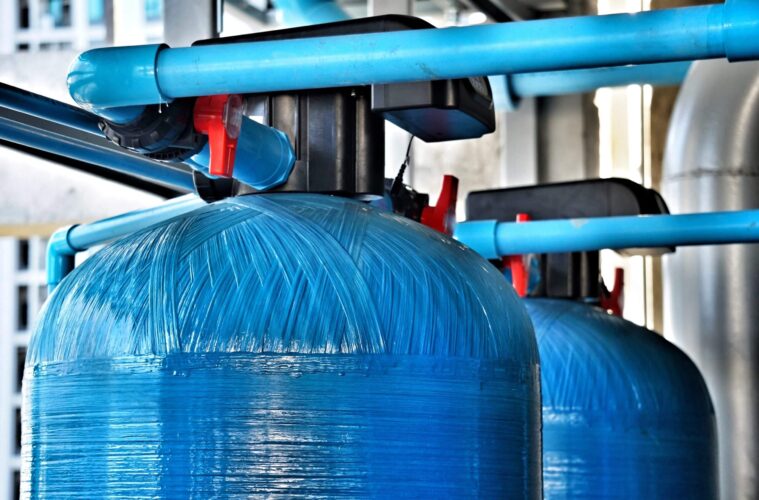According to a study published in the USGS.gov, roughly 80% of households have hard water in the US. Hard water isn’t harmful to consume, however, hard water can cause a significant amount of damage to your plumbing due to scale build-up. Scale will often lead to appliances having to work harder and operate less efficiently.
In this guide published on: Qualitywaterlab, mentions that homeowners can lose up to 75% of water flow-rate through sink faucets and showerheads cause from scale build-up and this can happen in less than three years if gone unchecked.
How to Choose the Right Water Softener
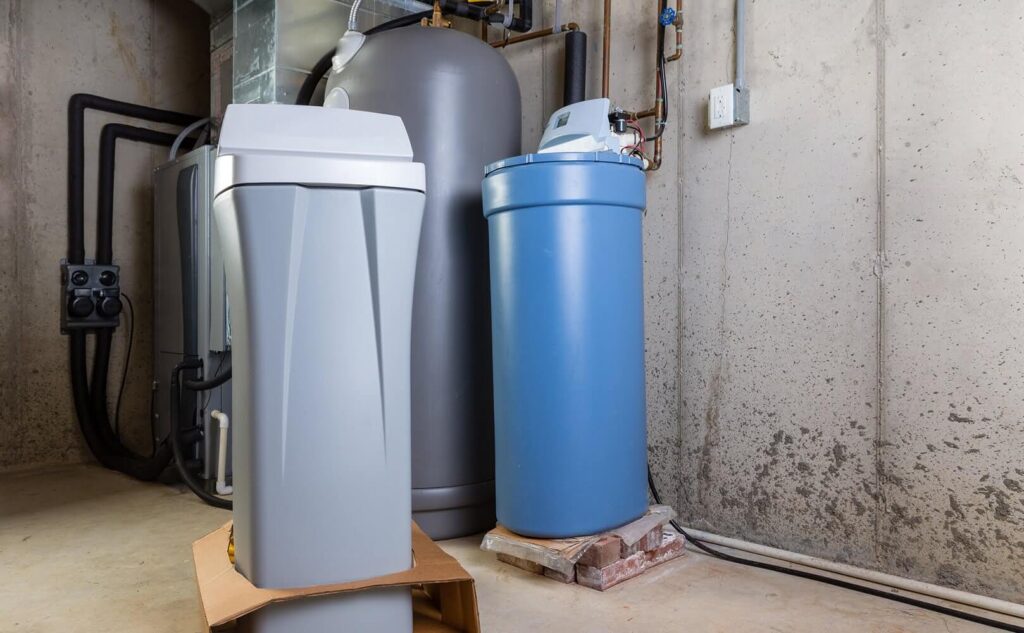
source: best-osmosis-systems.com
This article will discuss the topic of water softening in detail, providing a guide on how to purchase the best water softener and reasons a softener could be worth it. But before we get there, let’s identify who needs a water softener.
So, What Does Hard Water Mean?
Any water that exceeds 1 grain of minerals in each gallon containing dissolved minerals can be referred to as hard water. These could be calcium or magnesium that may be produced from rocks. So, how do you check if you have soft, moderate, or hard water? Water testing kits work well, where you can identify water contamination from harmful minerals and remove them through water softening.
How Do You Identify Hard Water: What are the Symptoms?
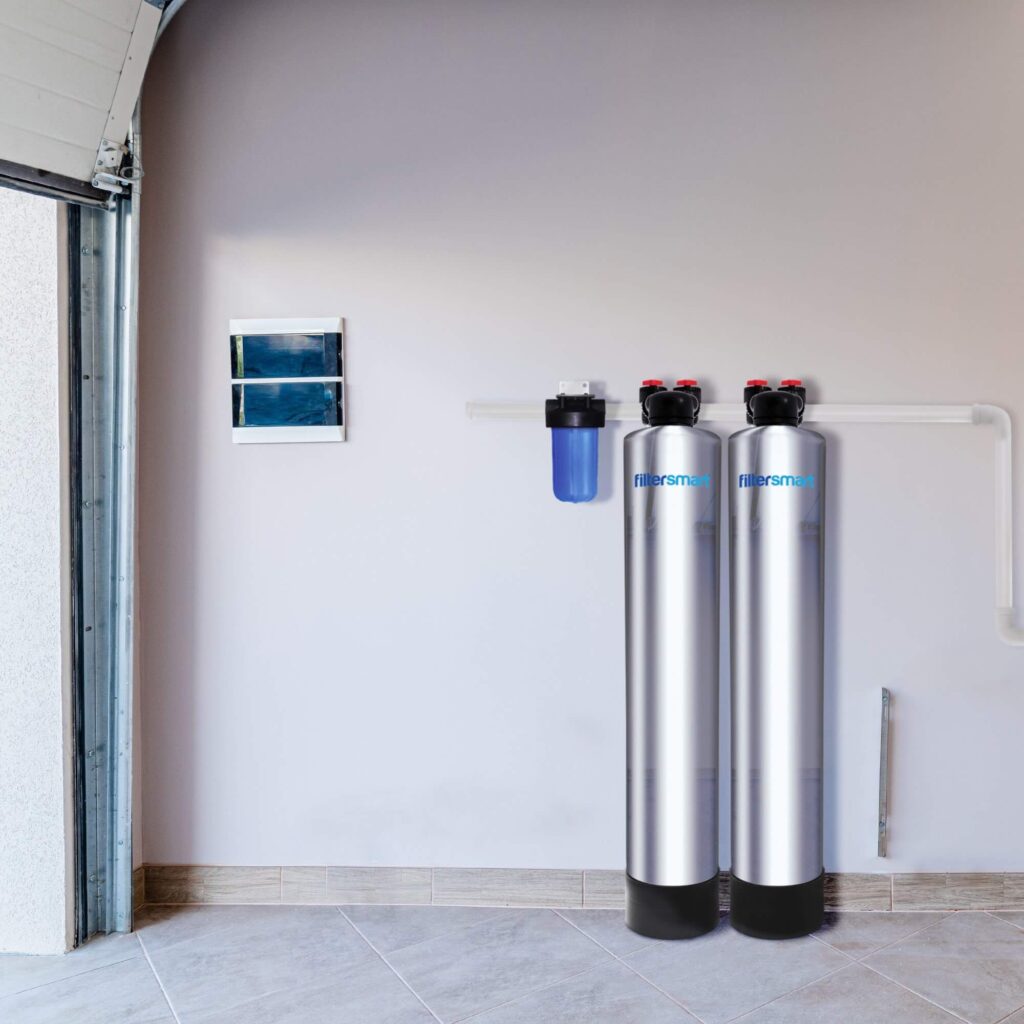
source: shopify.com
You can quickly identify hardness in water by checking the following indicators:
-Limescale formation in your home appliances that raise water temperatures
-Clogging of plumping areas
-Milk-like or cloudy water in a pool
-Residue formation in dishes
-Sticky feel
-Sticky hair after a shower
-Your skin gets sticky and gets dry quickly
-Poor soap foaming
The Effects and Challenges of Hard Water
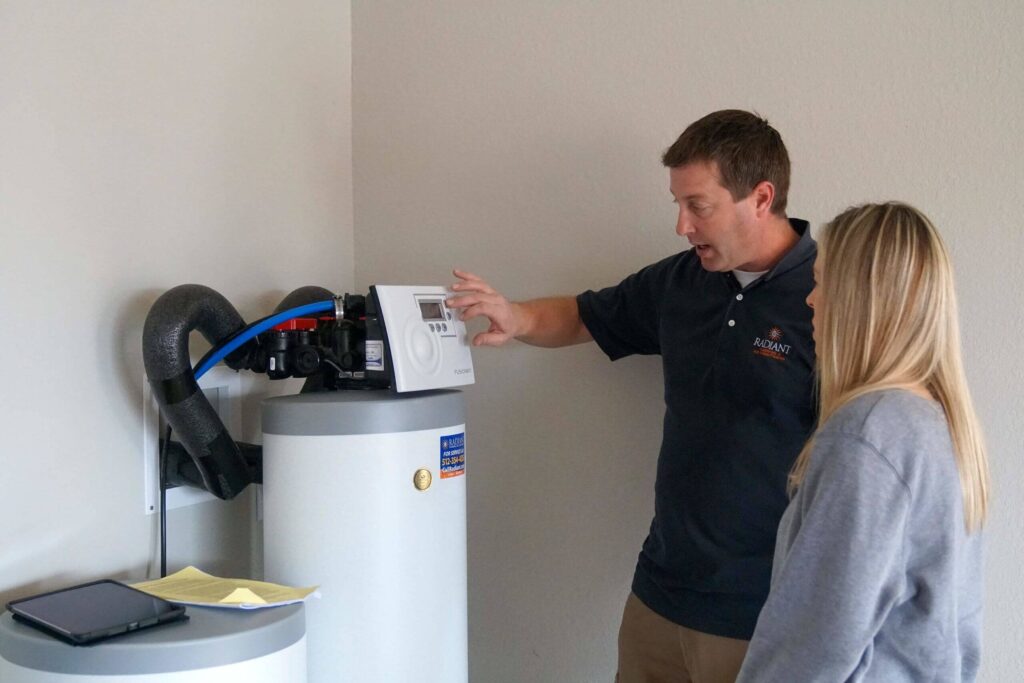
source: bgeon.nitrocdn.com
The World Health Organization confirms that hard water is safe for human use. However, some people have reported skin problems, including skin rashes, resulting from changes in pH value.
Scale build-up affects not only water heaters but also almost every home appliance that involves plumbing, making it essential to set up a water softening system. These water softening systems can work wonders descaling water to protect all the appliances in your home.
Some people think that boiling water can help remove hardness in water, but the reality is that the hardness can be permanent or temporal. You need to know that boiling can remove temporal water hardness, but it eventually causes limescale through the formation of calcium carbonate.
On the other hand, permanent hardness results from calcium sulfate, making it difficult to remove through the boiling water. If you are still asking yourself whether to drink soft water or not, the answer is yes. However, studies show that hard water is healthier as it constitutes natural and important minerals eliminated through the water softening process.
Types of Water Softeners
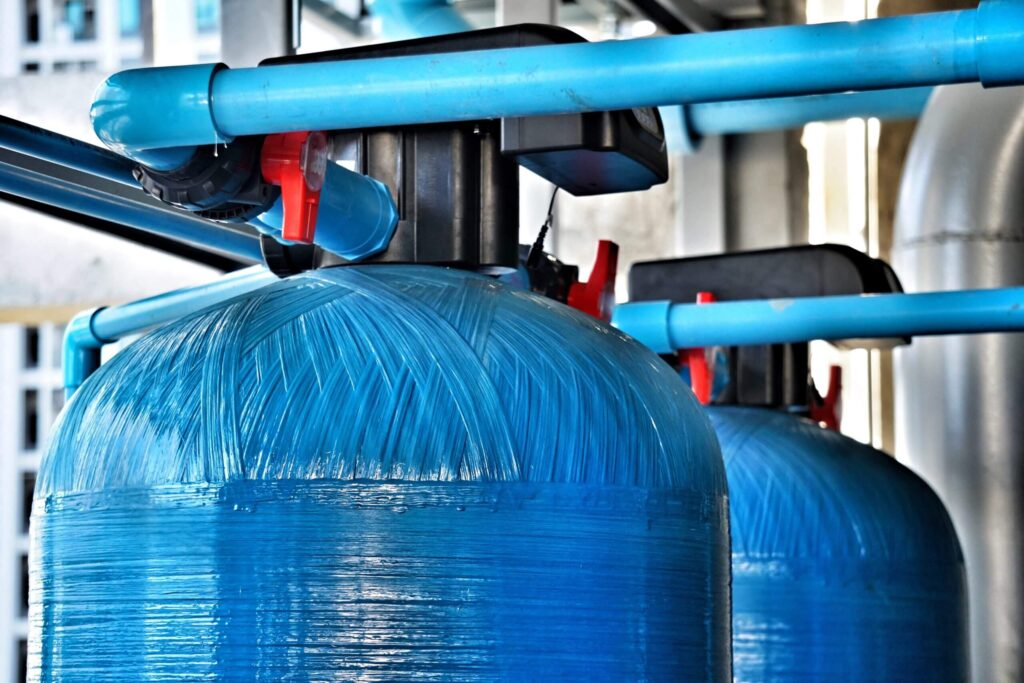
source: raynewater.com
Water softeners can be salt-based or salt-free and can function as manual, semi-automatic, or automatic. Sodium carbonate is an alternative way to soften water as both options involve removing magnesium and calcium ions.
Salt-based Water Softeners: these types are popular in the market, and you may find them as ion-exchange softeners. Their popularity results from their effectiveness, but their downside includes forming a salty taste in drinking water.
Salt-free water softener: this type of softeners utilizes potassium chloride and best suits people who want a salt-free taste. Also referred to as descaler, this type does not eliminate minerals from water, but then it can cause inefficiency in an environment with high volumes of water hardness.
Magnetic softener: this type treats water through the use of magnets. As water passes through pipes, the softener alters the water chemistry. However, two days after the procedure, water becomes hard again, so you have to ensure you soften what’s only enough for you.
The Conventional Water Softening System
The system involves ion exchange water softeners that remove all undesirable ions like magnesium and calcium ions to replace them with sodium chloride ions. An effective ion exchange water softener would include a cabinet that consists of two containers that separately hold resin beads and brine.
Water runs through the resin to attract magnesium and calcium ions and release sodium ions. So, when resin saturates, the process starts again, and brine is added to eliminate captured ions and clean the resin beads.
Tips for Purchasing a Water Softener
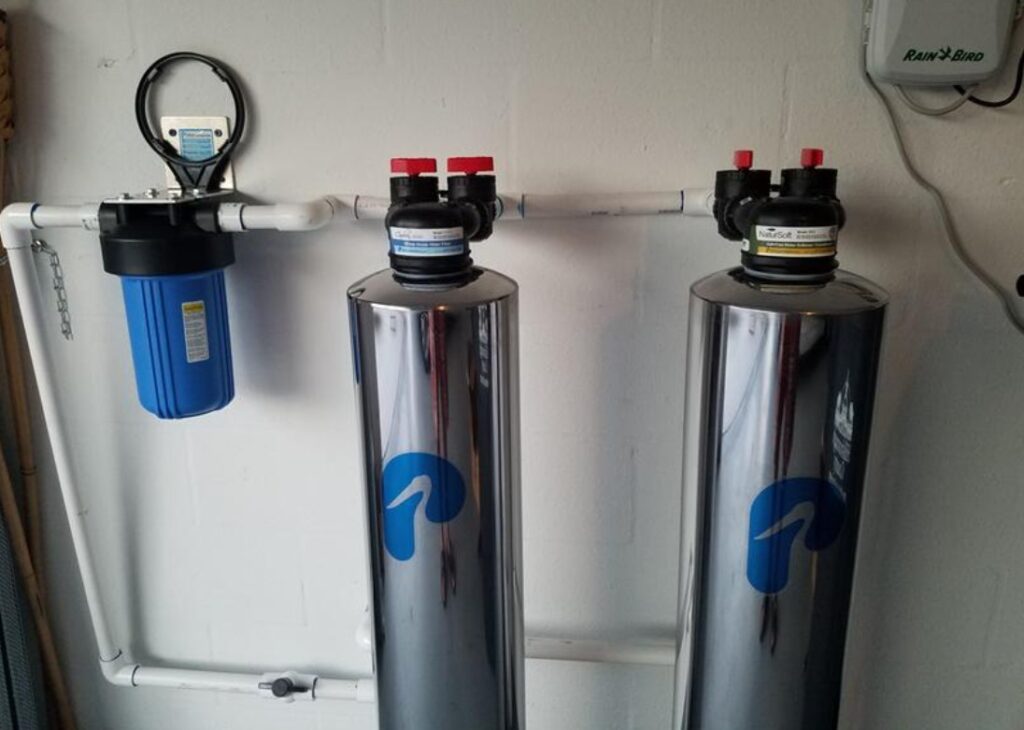
source: bukowskitavern.net
Here is what you need to consider before placing an order for your softener.
Grain Capacity
The softener grain capacity is deferred in their weight units, meaning removing different quantities in a single cycle before regeneration starts. On the other hand, the quantity of scale could vary depending on the resin volume, efficiency, and quality.
Service Flow Rate (SFR)
The SFR can range from 15-20 gallons every minute, affecting the production amount of softened water. However, this is a maximum rate; thus, it can vary. You require at least one cubic feet and an SFR of not less than 5 gallons per minute to soften water for a water heater.
Device Size
It is crucial to take your house measurements to enable you to install the right size of softeners. Ideally, you may want to take your house basement measurements since that’s what matters most. If you have limited space, then you may consider below your kitchen sink for small devices.
Certification
Ensure you check the National Sanitization Foundation and Water Quality Association for water treatment products tests and WQA Gold Seal.
The Advantages and Disadvantages of Water Softeners
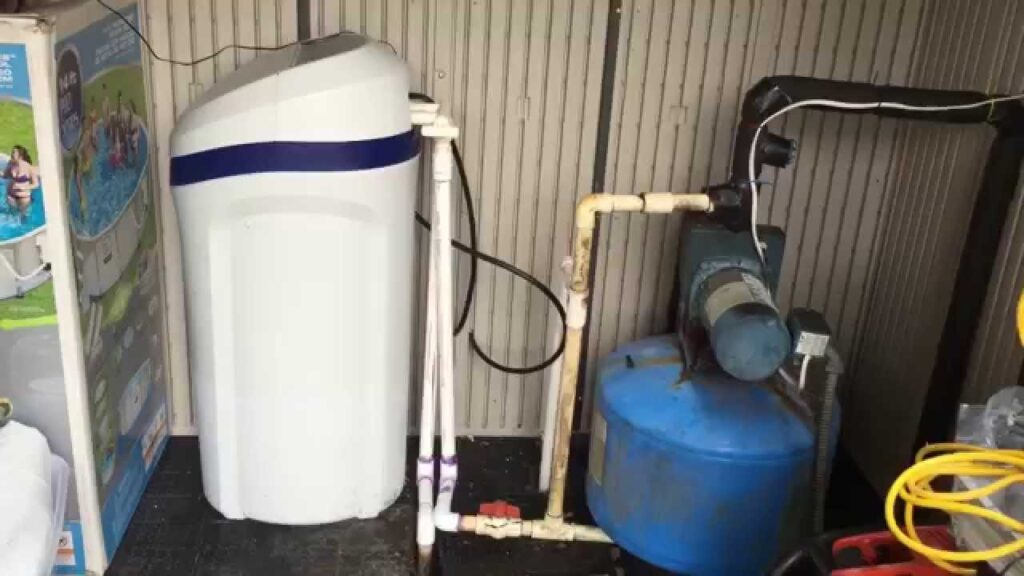
source: pinterest.com
Pros
-Protected appliances
-Less limescale on dishes
-Faster water heating
-Enhanced effectiveness of detergents
-Durability of water heaters
Cons
-Additional expenses for salt and plumbing
-Regular softener maintenance
-Not recommended for long-term cooking and drinking
Final Word
As you can see, water softening helps you overcome the challenges of hard water. However, you must be keen to check the softeners’ reliability and quality to ensure water safety.

